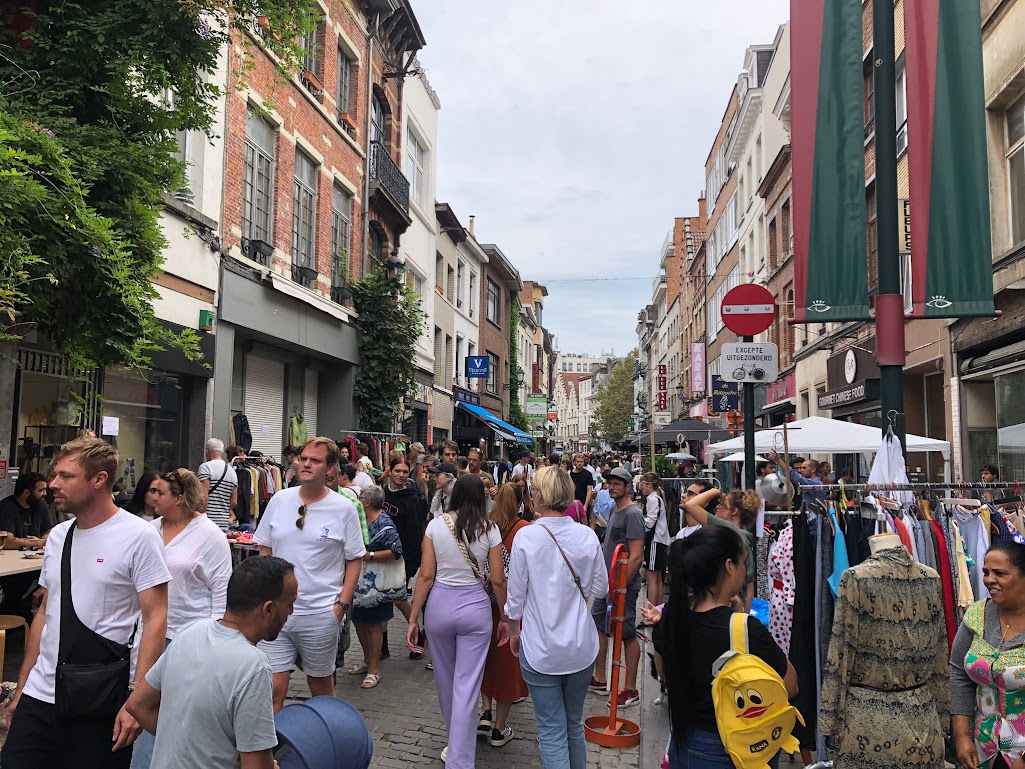Belgian pedestrians express dissatisfaction with their walking conditions, scoring them at a mere 10.4 out of 20, the inaugural Belgian Pedestrian Barometer results revealed Sunday.
Over 13,500 residents in Belgium voiced their opinion on the walkability of their local area in a survey conducted by three walking and pedestrian advocacy groups: Tous à Pied, Voetgangersbeweging and Walk.brussels. The study, which took place between 24 April and 30 June, worked on behalf of the Mobility and Transport Ministry.
The survey asked respondents about their motivations for walking, and their perceptions of comfort, safety, amenities, and the overall condition of pedestrian facilities.
The results highlight a broad agreement among pedestrians about what is 'walkable' and shared dissatisfaction, regardless of reasons for walking, age or gender, according to the study authors.
Over two thirds (70%) of those surveyed think that public spaces are not well-suited for walking, especially for those pushing prams, young children, elderly people, and those with reduced mobility. Furthermore, 64% of women do not feel safe walking at night and adjust their routes accordingly, compared with 49% of men.
Losing the spring in their step?
The barometer also found that pedestrians are particularly critical about the comfort of their walking experiences. 80% of them lament the lack of facilities maintaining their comfort, such as toilets, benches, shelters, and drinking water fountains. Also, 69% are disturbed by the pollution noise and air pollution caused by motorised traffic.
Furthermore, 65% view pedestrian routes as not free from obstacles such as bicycles, bins, parking meters, advertising boards and charging stations, and over 60% criticise the quality of the spaces designed for walkers, concerning their width, the materials used and the upkeep.
Unsurprisingly, wider, well-maintained, secure and decluttered pavements top the wishlist for respondents (82%). Pedestrians also call for improvements regarding safety and adaptations of public spaces for children either walking or in prams, older people, and people with reduced mobility. Only 18% of respondents feel that an eight-year-old child can walk safely alone.
Pedestrians' perceptions are generally worse in Wallonia than in Flanders and Brussels. The coexistence among diverse road users (pedestrians, bicycles, scooters, motor vehicles) is deemed more problematic in larger cities, particularly in the Brussels region.
'Many areas to improve'
Belgium's Federal Minister of Mobility and Transport, Georges Gilkinet, expressed his satisfaction at the success of the first barometer.
"For the first time, an in-depth survey on the needs of pedestrians, with the participation of 13,500 people, has been carried out. It's a success. The results clearly indicate that there are many areas to improve to make life easier for them," the minister said.
"Cities and municipalities can now rely on this concrete data to set priorities and improve pedestrian safety and comfort in their locality. We all have an interest in joining forces at all political levels to encourage more people to walk more often. It's good for health, mobility and the climate."

